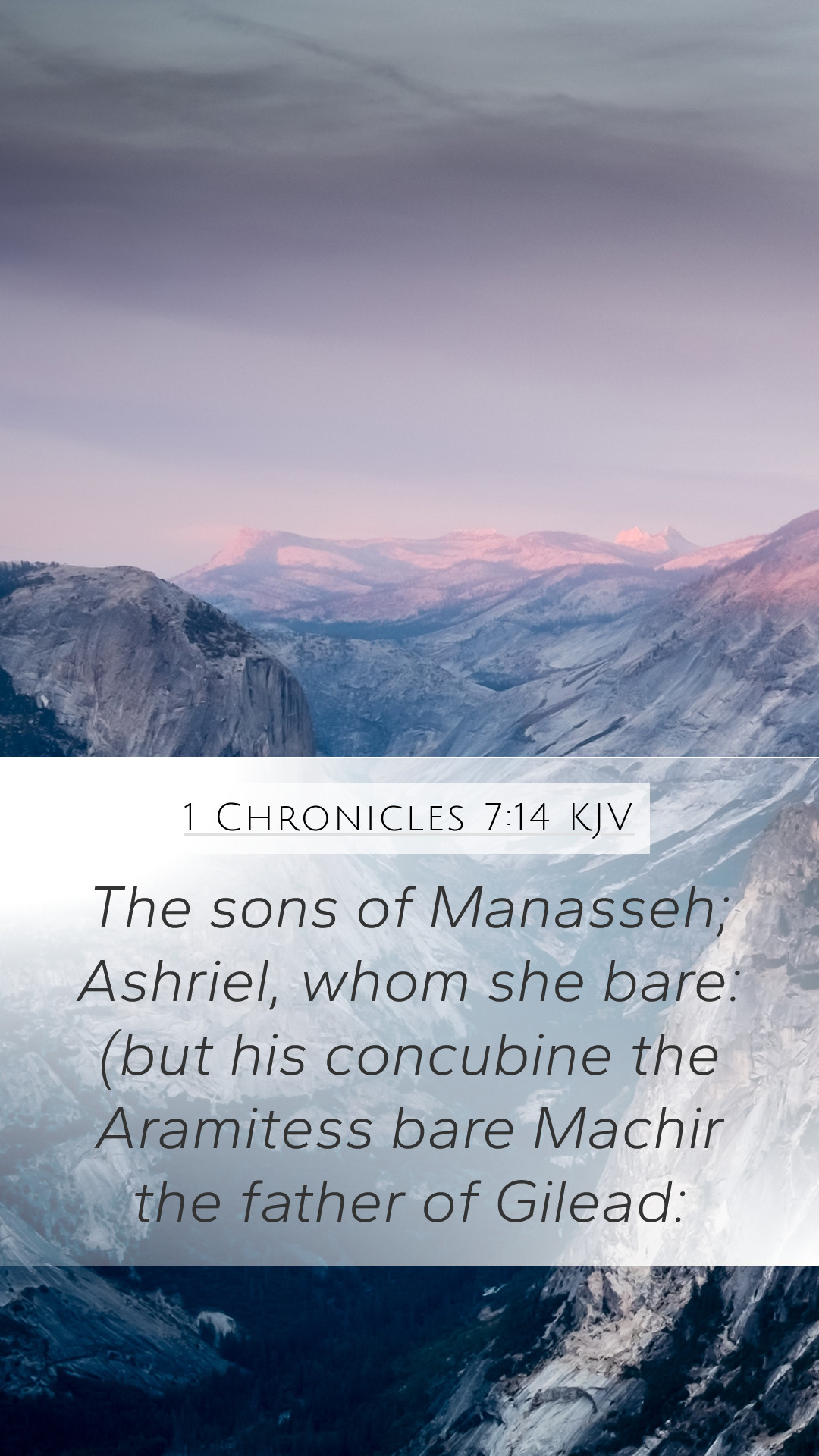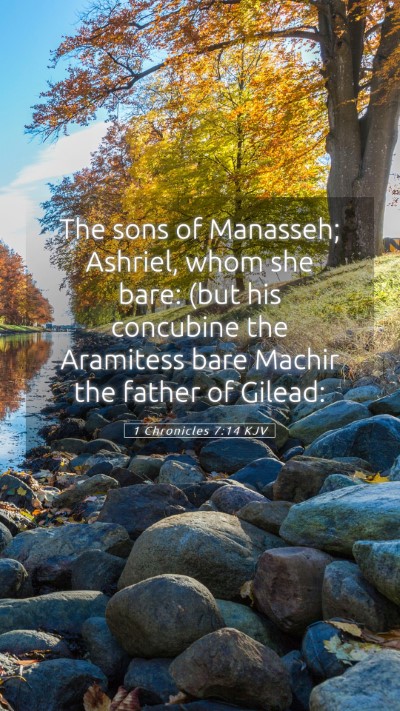Understanding the Meaning of 1 Chronicles 7:14
1 Chronicles 7:14 states, "The sons of Manasseh; Ashriel, whom she bare; (but his concubine the Aramitess bare Machir the father of Gilead)." This verse delves into the lineage and heritage of one of the tribes of Israel, specifically focusing on the descendants of Manasseh.
Overview of 1 Chronicles 7:14
The verse contributes to understanding the genealogies presented in the book of Chronicles, underscoring the importance of lineage in the context of Israel's history. In this chapter, the descendants of Manasseh are detailed, showing the relevance of their ancestry and their inheritance in the Promised Land.
Bible Verse Explanation
In interpreting this verse, several key insights from public domain commentaries can be combined:
- Matthew Henry: Emphasizes the importance of genealogy in maintaining the heritage of Israel. The detailing of specific individuals highlights God's promise of preserving a remnant through the lineage of His chosen people.
- Albert Barnes: Discusses the roles of individuals mentioned in this verse, noting the significance of Machir's lineage, who played an essential part in Israel's military strength and territorial gains.
- Adam Clarke: Provides context about the concubine mentioned and emphasizes the roles that different relationships played in the family structure of the Israelites, which often included concubines alongside wives in that historical context.
Key Themes in 1 Chronicles 7:14
From this verse and its commentary, we can extract several important themes:
- Significance of Heritage: Emphasizes the importance of heritage and ancestry in the Jewish community. Understanding one’s roots is crucial in biblical history.
- God's Faithfulness: Demonstrates God's faithfulness in keeping His covenant with the patriarchs, as seen in the lineage of Manasseh.
- Complex Family Structures: Acknowledges the varied family dynamics present in ancient Israel, including the roles of concubines and their contributions to family heritage.
Cross References
This verse can be understood in relation to several other scriptures that discuss genealogies and tribal lineages:
- Genesis 48:19 - Discusses the blessings bestowed upon Manasseh and Ephraim.
- Numbers 26:29-34 - Offers more details on the inheritance of the tribe of Manasseh.
- Joshua 17:1-2 - Covers the division of land among the tribes of Manasseh and their descendants.
Application of 1 Chronicles 7:14
For those engaged in Bible study or online Bible study, the genealogies in 1 Chronicles serve a powerful reminder of God's promises and His meticulous planning across generations. Understanding Scripture through passages like this encourages believers to:
- Recognize the significance of their own spiritual heritage.
- Appreciate the complex family dynamics and how they relate to God's grace and purpose.
- Apply the lessons of faithfulness in their lives, trusting that God oversees personal destinies through history.
Conclusion
In 1 Chronicles 7:14, we observe how scripture encapsulates the importance of lineage, faithfulness, and the multifaceted nature of biblical relationships. By studying these passages, we are furnished with insights that deepen our understanding of the biblical narrative and its implications for today. Utilizing bible study tools and engaging in bible study groups can enhance this understanding, foster discussions, and yield new insights into God's Word.
Further Study Suggestions
For individuals seeking further insights and understanding, consider:
- Finding commentary resources that focus on genealogies in the Bible.
- Engaging with bible study lessons that explore Old Testament history.
- Participating in bible study courses that cover the historical and cultural context of biblical texts.


